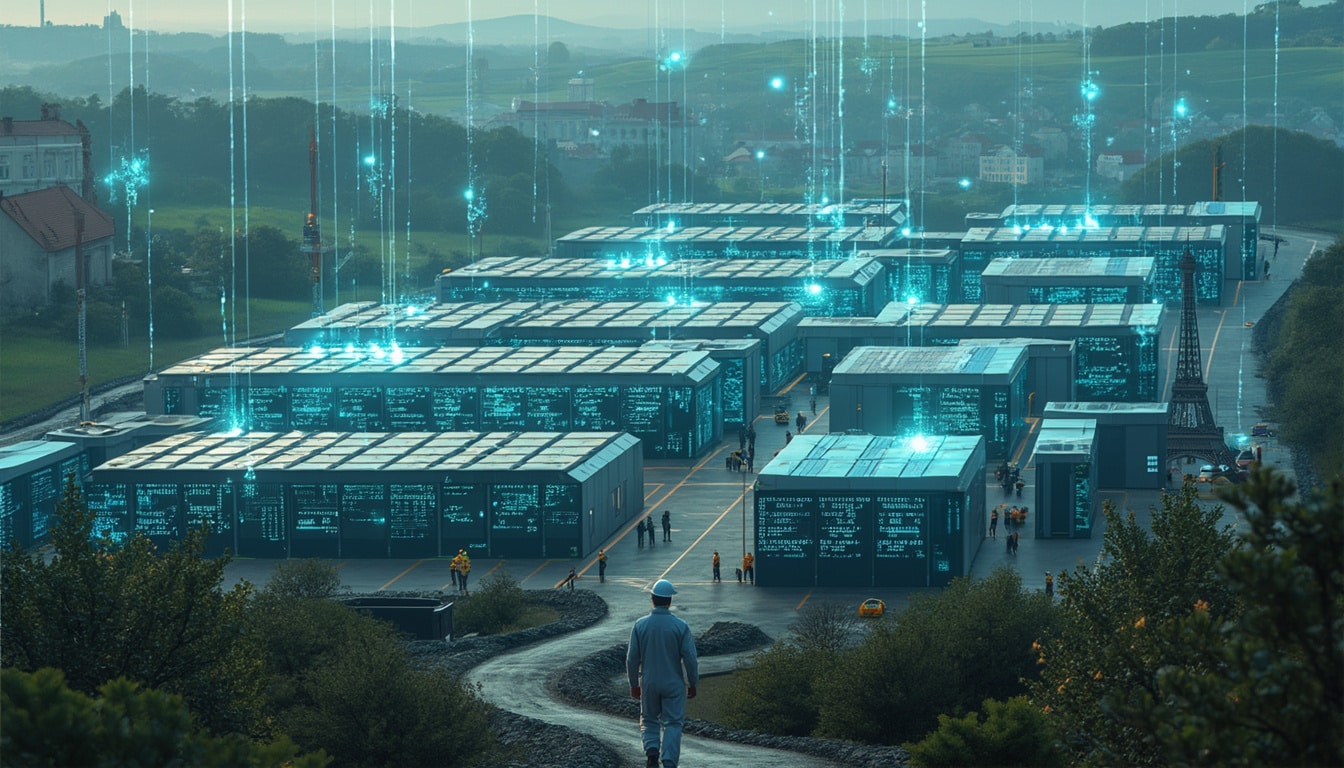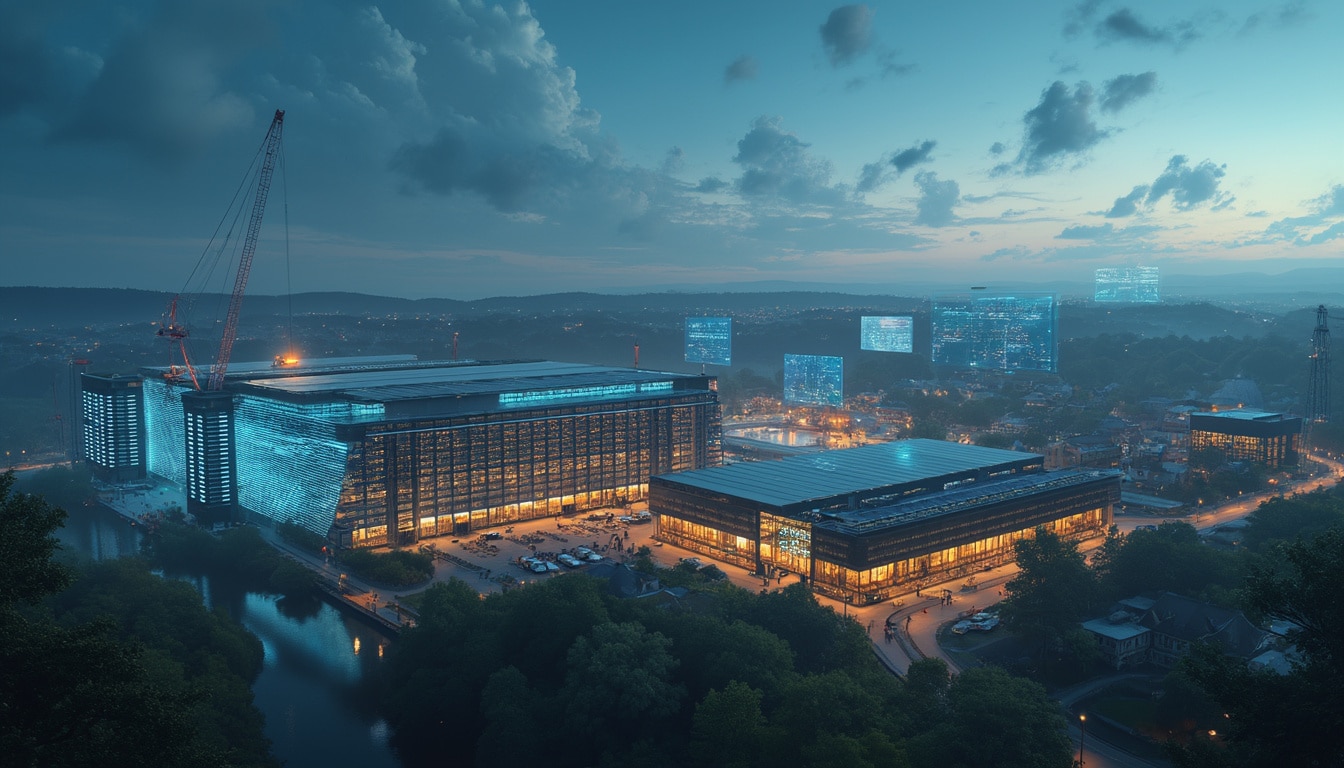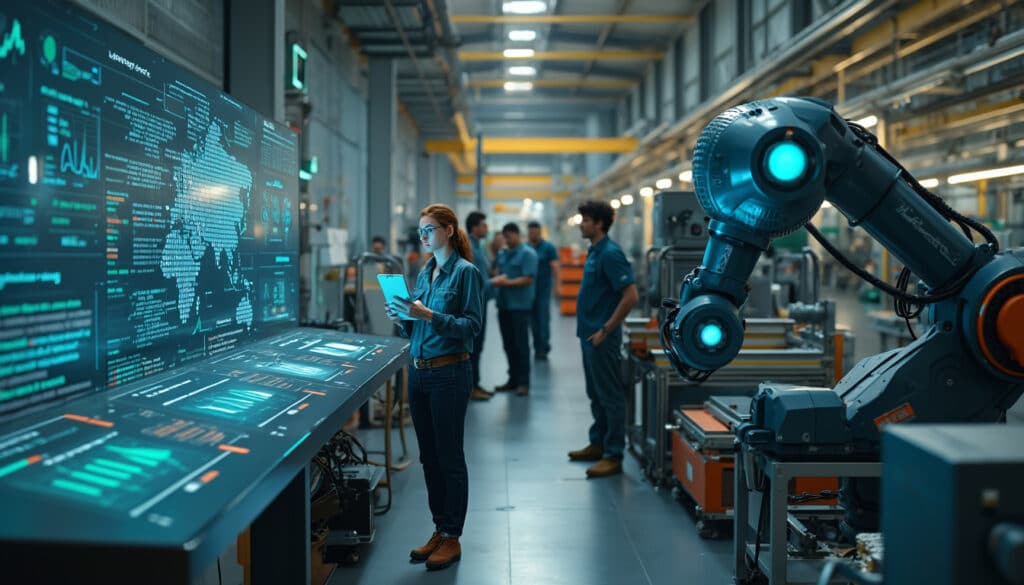In 2024, France establishes itself as a major player in the world of *datacenters* thanks to massive investments. With 4 billion euros committed by Microsoft, closely followed by Iliad and Amazon, the country aims to transform its digital landscape in favor of artificial intelligence. Although France already had 315 data centers in 2024, a large part of these new large-scale projects will specifically aim to support the growing needs of AI. Despite the challenges related to electric capacities and connection delays, the government is preparing a simplification law to support this strategic transformation. The proposed law could facilitate the inclusion of AI data centers in territorial structures, thus promising a complete overhaul of the country’s digital capacity.
In 2024, France faces a significant challenge: the lack of datacenters for artificial intelligence, as this technology has become a priority to ensure the country’s digital sovereignty. With only 315 data centers registered, the Hexagon is lagging behind its European neighbors. However, by 2030, new data center construction projects could change the game, with considerable investments planned.
Industry giants such as Microsoft, Iliad, and Amazon announce a total of 12 billion euros in investments in France over the next decade, with the ambition of creating centers with a capacity exceeding 100 MW, mainly in the Paris region, one of the largest data traffic areas in the world.
However, the path to completing these projects is not without obstacles: connection delays to the electrical grid are extending from two to approximately four or five years. Moreover, the simplification law, aimed at accelerating the establishment of these infrastructures, could ease these processes, even though it is delayed by the current political chaos. Discussions continue to structure the integration of these datacenters into the Territorial Coherence Schemes and give them the status of Major National Interest Projects.

Table des matières
Togglesignificant investments for datacenters in France
In 2024, technology giants like Microsoft, Amazon, and Iliad announced massive investment projects in France, with a total budget of 12 billion euros for the construction of data centers specializing in artificial intelligence by 2030. These projects mainly target the Paris region, already a hub for global data traffic. This enthusiasm for establishing new datacenters reflects the digital sovereignty that has become a national priority. However, despite these commendable intentions, France lagged behind with only 315 centers compared to Germany and the United Kingdom, making this development crucial to maintain French competitiveness in the digital field.
energy and connection challenges
The development of these datacenters does not come without challenges, particularly regarding electric capacities. With a growing appetite for energy, connection requests to the grid have increased, testing the current capacities of the French electrical system. Several new projects would require high-voltage connections between 50 and 200 MW, well beyond those existing. In light of this situation, connection delays have significantly increased, from two to potentially five years. This race for capacity highlights the urgency of adapting the grid to avoid bottlenecks, at a time when the French electrical network must already meet other growing demands, such as the development of electric vehicles.
simplification and political impacts
To support this rapid progression, a simplification law aimed at improving the development of new datacenter projects is under discussion. The strategic aspect of this legislation is to allow for smoother integration of these centers within the SCOT, as well as a status that would expedite administrative processes. However, the implementation of this law is not without difficulties, particularly due to political disruptions. Tensions also exist at the local level, with some residents viewing these projects as a source of pollution and noise nuisance. Local authorities are therefore seeking to balance the need for economic growth with respect for social and ecological environments, a process illustrated by the city of Marseille, where a economic contribution prerequisite was proposed for the acceptance of new projects.





